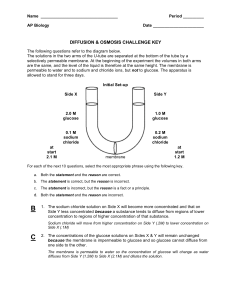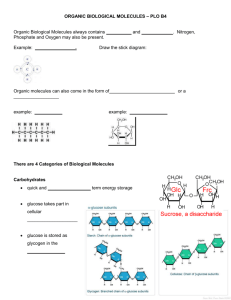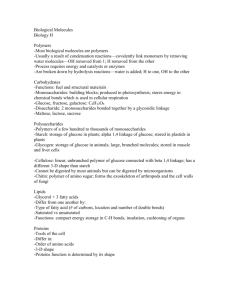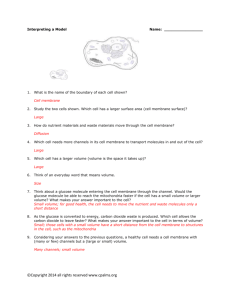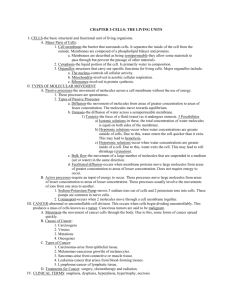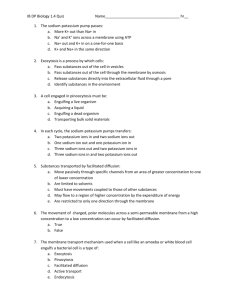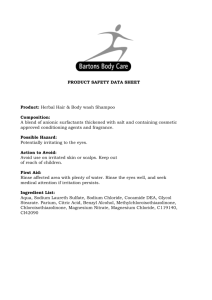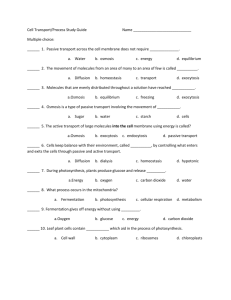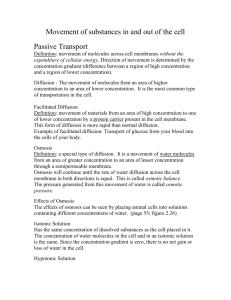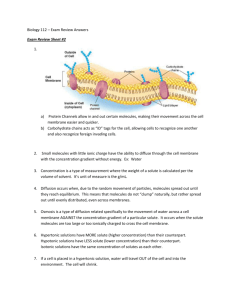Microsoft Word - Ch08OsmosisChallenge
advertisement
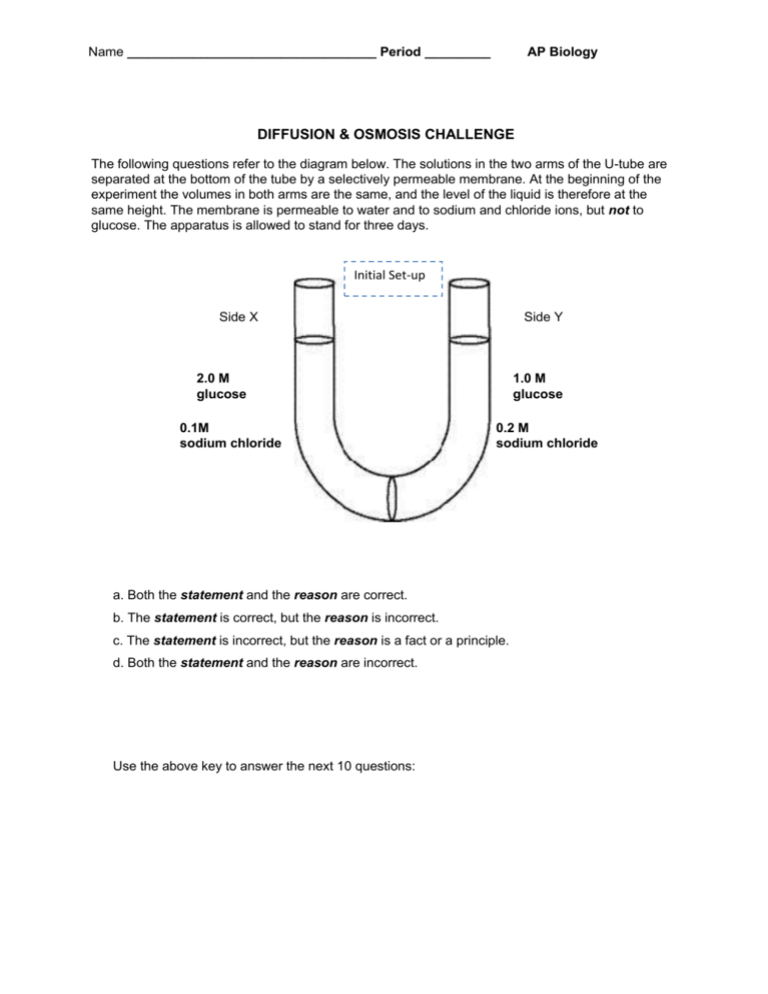
Name __________________________________ Period _________ AP Biology DIFFUSION & OSMOSIS CHALLENGE The following questions refer to the diagram below. The solutions in the two arms of the U-tube are separated at the bottom of the tube by a selectively permeable membrane. At the beginning of the experiment the volumes in both arms are the same, and the level of the liquid is therefore at the same height. The membrane is permeable to water and to sodium and chloride ions, but not to glucose. The apparatus is allowed to stand for three days. Initial Set-up Side X Side Y 2.0 M glucose 0.1M sodium chloride 1.0 M glucose 0.2 M sodium chloride a. Both the statement and the reason are correct. b. The statement is correct, but the reason is incorrect. c. The statement is incorrect, but the reason is a fact or a principle. d. Both the statement and the reason are incorrect. Use the above key to answer the next 10 questions: 1. The sodium chloride solution on Side X will become more concentrated and that on Side Y less concentrated because a substance tends to diffuse from regions of lower concentration to regions of higher concentration of that substance. 2. The concentrations of the glucose solutions on Sides X & Y will remain unchanged because the membrane is impermeable to glucose and so glucose cannot diffuse from one side to the other. 3. The concentration of sodium chloride on Side X will eventually equal that on Side Y because sodium and chloride ions will move by diffusion from one side to the other, gradually reaching a uniform density, and then the net movement of ions will stop. 4. The concentrations of glucose on Side X will decrease and that on Side Y increase because water molecules will diffuse through the membrane from Side Y to Side X by osmosis, thus lowering the glucose concentration on Side X. 5. The fluid level will increase on Side Y and decrease on Side X because water molecules will move through the membrane from regions of higher to regions of lower concentration of water molecules. 6. The fluid level on Side X will rise because the water molecules on that side at the beginning of the experiment have more free energy than those on Side Y. 7. The net movement of water molecules will be from Side X to Side Y because water molecules will move from the solution with the lower osmotic potential to the solution with the higher osmotic potential when the two are separated by a selectively permeable membrane. 8. Water molecule will move only from Side Y to Side X and not from Side X to Side Y because water molecules move only from regions of higher to regions of lower concentration. 9. The fluid on Side X will rise because the solution in Side X had lower osmotic potential than the solution in Side Y. 10. Water molecules will tend to move from Side Y to Side X because the net movement of water molecules will be from the solution with the lower osmotic concentration to the solution with the higher osmotic concentration. 2of 2
